This article by Constitution Party of Texas State Chairman, Daniel New, contrasts the GOP and the Constitution Party. Read more here


This article by Constitution Party of Texas State Chairman, Daniel New, contrasts the GOP and the Constitution Party. Read more here
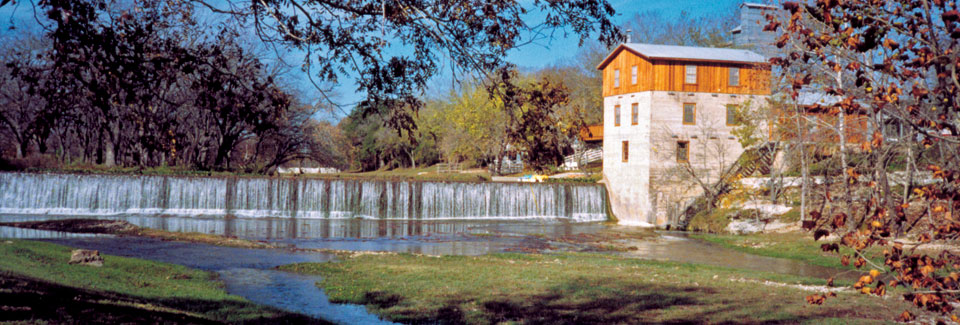
From the Constitution Party of Texas website:
Our State Conference will be in Belton on June 10th, same venue as last year, Summers Mill Inn.
We have booked Summers Mill Inn for lodging for ten rooms for the night of June 9, and for the State Conference all day Saturday, the 10th of June. Cost of the rooms are $96.12 apiece with all taxes included. You can find a room in town at a nearby motel, for the night at that price or higher.
It is YOUR responsibility to book your room and pay for it – in advance. I’ve asked them to pencil in these ten rooms as a guarantee, but as of today she still has a few empty rooms besides these. After these it will be first-come, first-serve.
Call Summers Mill at (254) 939.6194, ask for Judy, have your credit card ready. Or mail a check if you prefer.
Their website is http://summersmill.com/

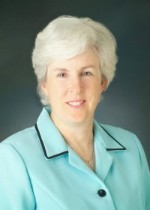
From Founded On Truth:
In response, our first 2017 conference call series will focus specifically on the US DOE. In part one, Chairman Peg Luksik will explore how federal education dollars fit into overall education spending, including state and local dollars.
The conference will last no more than 30 minutes and will be available on the Founded on Truth web site for future playback. Although there is no cost for attendance, donations are greatly appreciated.
So mark your calendars for
And together, let’s begin to make the American vision of locally controlled schools a reality once again.
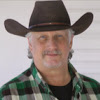
Watch this video of Wild Bill for America, over 42.000 YouTube Subscribers, discuss why Americans should join the Constitution Party!
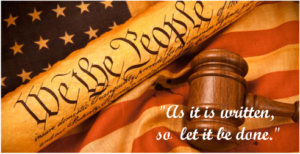
Darrell Castle discusses the original intent of the US Constitution.
“[Original Intent] No judges employ it, and no lawyers argue it. It is not desired by any politicians or by their special interest groups for whom the Constitution’s quaint words and phrases serve only as a cover story for what best lines their pockets.”
Full Article on The Castle Report
The fact that political parties have developed over the history the United States of America is largely due to human nature–a tendency to congregate with others who have mutual ideas and interests. From almost the beginning there were two competing parties–the Federalists of Washington, Hamilton and Adams and the Democratic-Republicans of Jefferson, Madison and others. This was the beginning of the so-called “two party system.”
Despite this, new parties are not a unique experience in American politics. It wasn’t long before there was a change in the original line-up. In 1816, the Federalists were to run their last Presidential candidate and for much of the remainder of the first part of the 19th Century the Whig Party provided the primary competition for the party that came to be known as the Democrat Party. Well known Whigs included Daniel Webster, William Henry Harrison and Henry Clay.
In the 19th Century new parties continued to develop. In 1832, the Anti-Masonic Party won 8% of the vote. In 1848 the Free Soil Party, led by former President Martin Van Buren, won 10% of the vote. In 1856, the year the Republican Party was born–as a new or “3rd Party–another 3rd Party, the American Party (or Know Nothings as they came to be better known) won 22% of the popular vote with former President Millard Fillmore heading the ticket. Of course, in 1860, Abraham Lincoln of the new Republican Party was elected President. The Republican Party had been born as a “third party” in 1856, as aforementioned, largely in response to the issue of slavery.
Thereafter, the Whig Party, which had failed to take a strong stand on the matter of slavery, faded from the political scene and was replaced by the Republican Party as the second major party in the eyes of most people. Nevertheless, throughout the remainder of the 19th Century new parties continued to burst onto the scene and some met with success. The People’s Party (also known as Populist Party) flourished in the latter years of the 19th Century and continued on into the early years of the 20th Century. Its Presidential ticket carried four states in 1892 and it elected candidates to office in local and statewide races in some jurisdictions. Its fortunes were short lived, however, as the Democrat Party co-opted many of its main issues in 1896. It re-organized and hung on to some degree until 1908 when its flame finally flickered out.
In the early 1900’s the interest in alternative political solutions had not, however, abated. As the late William K. Shearer noted, in his history of the American Independent Party:
“By the early 1900s, the Republican Party had become thoroughly dominated by a few powerful political bosses, the giant political bosses, and the financial empires which the bosses serve. Farmers, workers and independent businessmen suffered while the power of government was directed only to serve the interests of railroad, banking and other monopolies.”
“Particularly in the Midwest and West rebellion stirred. Dynamic political personalities such as Robert La Follette in Wisconsin, George Norris in Nebraska, Hiram Johnson in California, the Nonpartisan League in North Dakota, and the Farmer-Labor Party in Minnesota overturned the monopoly-dominated Republican machines and elected public officials pledged to progressive goals…”
This, generally speaking, was the foundation of what became known as the Progressive Party. In 1912, the Progressive Party, with Theodore Roosevelt as its standard bearer, received over 4,000,000 popular votes (27.4% of the total) and over 88 electoral votes. In 1916, however, Roosevelt deliberately scuttled the Progressive Party, and went back to the Republican Party. That year, the Progressive Party failed to nominate a candidate for President at its national convention. The Progressive Party did survive in some states until the 1940’s and again ran a Presidential ticket in 1924 with Senator Robert La Follette as its Presidential nominee and Senator Burton K. Wheeler as its Vice-Presidential candidate. That ticket secured 4,800,000 popular votes (16.6%) and 13 electoral votes, but 1924 proved to be the end for the Progressive Party as a national entity.
In the 20th Century there were more new party efforts, not all of which does space allow mention of here. The 1948 Presidential Campaign featured two “third parties,” the States Rights Democrats, “Dixiecrats” lead by South Carolina Governor Strom Thurmond and a new Progressive Party incarnation led by former Vice-President, Henry Wallace, though neither effort took on a life beyond the 1948 election year. Two other major third party efforts in the 20th Century must also be noted: The American Independent Party candidacy of former Alabama Governor George Wallace in 1968 and the Reform Party candidacies of Ross Perot in 1992 and 1996.
In 1968, a year of great turbulence in American history, George Wallace secured nearly 10,000,000 popular votes and about 14% of the votes along with the electoral votes of the states of Arkansas, Louisiana, Mississippi, Alabama and Georgia. This effort did grow into an ongoing political party, the American Independent Party, though Wallace was never again to be its nominee.
After the Wallace candidacy of 1968, the Republicans and Democrats and the power brokers who support them, were sufficiently alarmed so as to cause them to begin the process of making ballot access laws for new parties–particularly in some southern states–much more difficult around the country. As a result, new grassroots parties such as the Constitution, Libertarian and Green Parties now face difficulties not generally encountered by 3rd Parties in the 19th Century and the early part of the 20th Century in just putting its candidates on the ballot. Many state laws make simply qualifying for the ballot an exceedingly difficult chore. It is, of course, very difficult to compete in an election when one isn’t even allowed to be on the ballot!
Another obstacle arising more prevalently in the latter part of the 20th Century has resulted in the dwindling number of competitive news media sources that are willing to provide information about new parties and their candidates. With the vast reduction in the number of newspapers and consolidation of all news media sources into the hands of just a few major corporations, which are closely interlocked with the major financial institutions who have a strong interest in perpetuating the status quo, there is very little opportunity for a new political “brand” to break through the media barrier. In fact, since 1972, after the shock to the establishment caused by the Wallace candidacy in ’68, there has been in effect what has been described as a “blackout” concerning new or “third” political parties on the part of the national media.
The majority of Americans who depend on the national media for their information are now completely unaware of the existence and efforts the so-called “minor parties” such as the Constitution Party, the Libertarian Party or the Green Party. Only in unique circumstances, when its hand is forced, does the national news media even acknowledge other parties or independent candidates, in any kind of a serious way. Such a circumstance did arise in 1992, when well- known billionaire Ross Perot ran as a candidate on his newly established Reform Party. It was clear to the news media that if it ignored his candidacy he could bypass any blackout by simply buying all of the paid advertising that he needed. In addition, his money would allow him to overcome ballot access barriers which provide difficult obstacles to grassroots party movements. Therefore, the national news media didn’t even try to ignore him. Because of his folksy manner and the fact that he was hitting on important issues, ignored by the other parties, such as the national debt and trade policies which were causing the loss millions of American jobs, Perot actually led all candidates in the polls for quite a while in 1992 and finally ended up setting a record for an independent or third party popular vote total, though he received no electoral votes.
It should be noted that in 1992 there were several other well organized third party efforts including the US Taxpayers (Constitution) Party, Libertarian Party, and Natural Law Party. These parties did not have millions at their disposal to spend and were ignored by the national news media, despite the serious messages propounded by their candidates.
That only two parties have dominated the American political scene for most of the 20th Century and early portion of the 21st Century can be attributed to the fact that this “two-party paradigm” has served the established economic powers very well. While this was to some extent true throughout history, the consolidation of media sources and the mergers of major corporations and financial interests have made the effect more pronounced since the latter part of the 20th Century.
Dr. Carroll Quigley, a professor at Harvard, Princeton and Georgetown Universities wrote a book entitled “Tragedy and Hope” which amounted to an “expose,” albeit an affectionate one, of the international “roundtable” network which, working with “the ‘powers of financial capitalism, has the aim of establishing world system of financial control in private hands able to dominate the political system of each country and the economy of the world as a whole.” Certainly in the 20th and 21st centuries, there is little room for doubt that we have seen the consolidation of financial power into fewer hands and that these power brokers exert greater control over the media and the political system than ever before.
In examining the “two party system” prevalent in the United States, Professor Quigley noted:
“The argument that the two parties should represent opposed ideals and policies, one, perhaps, of the Right and the other of the Left, is a foolish idea acceptable only to the doctrinaire and academic thinkers. Instead, the two parties should be almost identical, so that the American people can “throw the rascals out” at any election without leading to any profound or extreme shifts in policy.”
One doesn’t have to subscribe to a “conspiracy theory of history” to understand that this “pendulum-style political system” serves the big-monied special interests and the entrenched parties, whom they control, quite well. The powerful special interests, sitting, figuratively, at the fulcrum of the pendulum, contribute to and exert tremendous influence and control over both, the Republican and Democrat parties. While the voters feverishly push the political pendulum back and forth from one side to the other, election after election, under the impression that they are making significant changes, there is actually almost never any significant change made at all when it comes to real policy. In fact, those who exert the real power and influence behind the scenes (or at the fulcrum for the purpose of this example) rarely, if ever, care which candidate or party is elected. While the names sometimes change, and the rhetoric may be passionate and seem significantly different between the parties, policy almost never changes because the big money power brokers who effectively control most of what happens in both major parties remain the same and so do their interests.
History demonstrates that new parties, despite the “conventional wisdom” that America has a two-party system, have existed almost from the beginning of our nation’s history. Rather than being a strange anomaly, they have been a natural and frequent political occurrence. On two occasions previously dominant national parties were replaced by newer parties. First, the Whigs replaced the Federalists and later the Republicans replaced the Whigs. In both 1968 and 1992, similar re-alignments nearly occurred. As dissatisfaction with major party politicians has reached an all-time high, it would certainly appear that some new re-alignment of political parties is highly possible, and would be extraordinarily appropriate. It will be necessary however, if this is to occur, for American voters to begin to think for themselves and to cease being slaves to “pendulum politics.” The American voter must break from the habit of voting for the lesser of two evils out of fear, and begin voting for what, in their heart, they know is right and for those candidates who they know will do right, according to the Constitution of the United States of America.
If the American people are ready to take this courageous step, the Constitution Party is prepared to be that new broom that will sweep clean and give the American people a real chance to reclaim their nation.
(“A Brief Look at the History of Third Parties in America”, page 5; America Needs a Third Party Now!)
Click here to return to main Platform and Resolutions page.
[su_menu name=”subscribe-donate”]
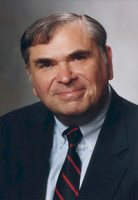 Howard Phillips was born in Boston, Massachusetts in 1941. The son of Jewish parents, he later converted to Christianity, and remained a devout Christian to the end of his life. He married Margaret “Peggy” Blanchard and together they raised six children.
Howard Phillips was born in Boston, Massachusetts in 1941. The son of Jewish parents, he later converted to Christianity, and remained a devout Christian to the end of his life. He married Margaret “Peggy” Blanchard and together they raised six children.
A 1962 graduate of Harvard College in Cambridge Massachusetts, he was twice elected as chairman of the Student Council.
During the 1970s and ’80s, Phillips also coordinated efforts to build private sector support for anti-Communist freedom fighters in Central America and southern Africa. He played an instrumental role in the leadership of the New Right and Religious Right political movements. Phillips led geostrategic fact-finding missions to Eastern Europe, Africa, the Baltic States, South America, Central America, Western Europe, and the Far East.
During the Nixon Administration, Phillips headed two Federal agencies, ending his Executive Branch career as Director of the U.S. Office of Economic Opportunity in the Executive Office of the President, a position from which he resigned when President Nixon reneged on his commitment to veto further funding for “Great Society” programs.
Howard Phillips founded the U.S. Taxpayers Party (USTP) in 1992 to offer America leadership committed to restoring the Federal Republic to its delegated, enumerated Constitutional functions and returning American jurisprudence to its original “common law” Biblical foundations. Phillips was nominated in 1992 and 1996 to be the USTP candidate for President of the United States. In 1999, the name of the US Taxpayer’s Party was changed to “Constitution Party” to better reflect the party’s primary focus of returning government to the U.S. Constitution’s provisions and limitations, and Howard Phillips was chosen to be its 2000 Presidential candidate.
Phillips also served as President of The Conservative Caucus Research, Analysis & Education Foundation.
Author of four books: The New Right at Harvard (1983), Moscow’s Challenge to U.S. Vital Interests in Sub-Saharan Africa (1987), The Next Four Years (1992), and Victory 2000 (1999).
Awards:
America truly lost one of her most valiant patriots with the passing of Howard Phillips in April of 2013. Thank you, Howie, for carving the path for us to follow in re-establishing the American Constitutional Republic. May we live up to your vision and the vision of the Founders of these United States of America.
by Chuck Baldwin, April 25, 2013
My column today is dedicated to a great man. That man is Howard Phillips. Howard Phillips went to Heaven this past Saturday, April 20, 2013. I am so blessed to have gotten to know this remarkable man, and, more than that, to be able to call him my friend. I first met Howard some thirty years ago in the Bahamas. I attended a national meeting of conservative leaders and Howard was one of the principal speakers. I suppose the first thing that struck me about Howard was his remarkable intellect and deep conviction. It is no hyperbole to say that Howard Phillips was one of the most brilliant men I have ever met. A graduate of Harvard, Howard’s grasp of government, history, and law was unequalled.
Howard Phillips forgot more about those subjects than the vast majority of us will ever learn. He was literally a walking history encyclopedia. He might have been the keenest, sharpest mind that I have ever been exposed to. Howard Phillips was an intellectual giant. But as awesome as his mind was, Howard’s commitment to the principles of liberty was equally awesome. Liberty has never had a more ardent defender than Howard Phillips. And communism never had a more formidable adversary.
Howard Phillips was born and raised in Boston, Massachusetts, and became a dynamic conservative leader from his youth. At Harvard, he was twice elected president of the Student Council. He was a GOP precinct worker, election warden, campaign manager, congressional aide, Boston municipal Republican chairman, and assistant to the Chairman of the National Republican Committee. He later became president of Policy Analysis, Inc., chairman of the Conservative Caucus, and founder of the U.S. Taxpayer’s Party, now named the Constitution Party. This is the third largest political party in the United States.
The Constitution Party nominated Howard three times as its Presidential candidate. Howard (“Howie” as he was known to his friends) served in President Richard Nixon’s cabinet and headed two federal agencies in the Nixon administration. He voluntarily resigned his post in the Nixon White House after Nixon reneged on his promise to defund the giant Welfare State, known as “The Great Society,” which had been created by President Lyndon Johnson. What many people do not realize is that Howard Phillips was the principal founder of what became known as the “Religious Right.” Howard was also the man who most influenced Jerry Falwell to start the Moral Majority.
Howard Phillips is as important to the rise of the modern conservative movement as George Washington and Thomas Jefferson were to the rise of the independence movement in Colonial America. As a conservative and constitutionalist leader, Howard Phillips had no peer. One of the great honors of my life came when Howard asked me to seek the Constitution Party’s nomination for President in 2008. At his behest, and after much prayer and contemplation, I did this and was honored to have received that party’s nomination by an overwhelming vote from the party’s national delegates.
It was during that campaign that I received the endorsement of Congressman Ron Paul. During and after the 2008 campaign, Howard and I became very close. I found him to be among my dearest of friends and closest of confidants. Howard Phillips was raised as a Jew but became a staunch believer in Jesus Christ as an adult.
Howard and his wife Peggy have six children and many grandchildren, all of whom are among the finest people that anyone would ever meet. The entire Phillips family is an outstanding reflection of the character and commitment of both Howard and Peggy. Please pray for this wonderful family.
Now, I have one more honor that has been bestowed upon me: Peggy asked me to conduct Howard’s funeral service and preach the funeral message. To say that I am overwhelmed at being asked to perform such a task is an understatement. Nothing anyone could say is sufficient to honor a man the caliber of Howard Phillips. I covet your prayers. Howard’s viewing will take place at the Money and King Funeral Home in Vienna, Virginia, this Saturday, April 27, from 3:00-5:00pm, and Sunday, April 28, from 3:00-7:00pm local time. The funeral service will take place Monday, April 29, at 11:00am local time at the McLean Bible Church in Vienna.
As King David said of Abner, I say of Howard Phillips, “Know ye not that there is a prince and a great man fallen this day?” The Phillips’ family has lost their patriarch, their loving and devoted husband, father, and grandfather. The Conservative Caucus has lost their beloved chairman. The Constitution Party has lost their courageous founder. Modern conservatives and constitutionalists nationwide have lost a Founding Father. Freedom fighters around the world have lost one of their truest allies. America has lost one of its greatest patriots. Liberty has lost one of its most ardent defenders. And I have lost one of my dearest friends.
(c) Chuck Baldwin www.ChuckBaldwinLive.com
by Darrell L. Castle – Constitution Party Executive Committee and 2808 Constitution Party Vice-Presidential Candidate
Howard enabled Joan and me to serve in the great cause of liberty and in the struggle for the soul of America. It will not be the same without his advice, wise counsel, and his eloquent speaker’s voice at every meeting. Listening to Howard’s stories and jokes were the highlights of every CP meeting. He knew so many different people in government that he could entertain endlessly with stories from his past. Howard had a great sense of humor and always appreciated a good joke. He loved theater, movies, and his family and never tired of talking about his children’s accomplishments. He never failed to inquire about family members not present and was intensely loyal and expected the same in return. He was always loyal to me and I like to think I was the same for him.
I remember Howard as being the best at speaking in front of a camera or just in front of a group. He had a matchless gift for the English language and was merciless as an editor. I learned a lot from him in that regard.
Howard Phillips was a lot more than I have been able to say with these few words. In the words of his son Doug he was the most principled and courageous statesman of his generation. He inspired many thousands of people with his courageous fight for liberty. He was a larger than life figure whose intellect towered over most of us.
I am honored to have known Howard and to have called him friend and brother. We were brothers in the fight for liberty and for western civilization, and we were brothers in Christ.
Rest in peace, Howard.